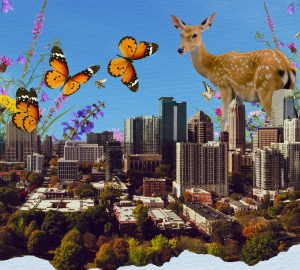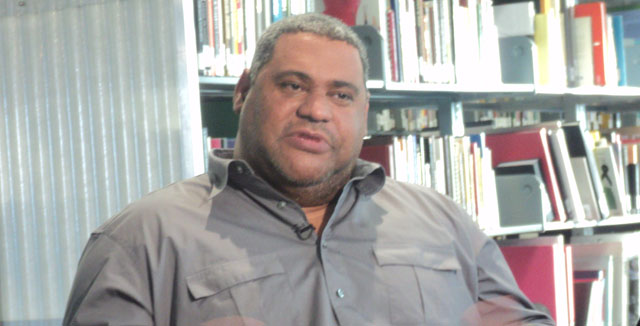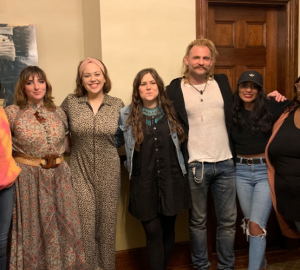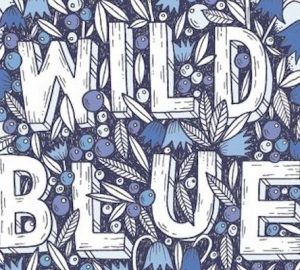“Language is much more important than just the idea of words,” Chris Abani said while visiting SCAD Atlanta last Thursday. Abani was speaking to a group of writing students who attended an Ivy Hall workshop with the award-winning novelist, poet and professor. Most people think that language simply describes what already exists in the world. Abani asked his intimate audience of SCAD writing students and professors to think about language as a tool that creates what exists — a table isn’t really a table, until someone says it is — before that, it’s just different elements put together.
“Once you really understand language,” Abani continued, “you understand metaphor in a very different way.” Abani is best known for his evocative novels that place his characters in challenging circumstances that test the scope of human nature and compassion. His works include “Graceland,” “Becoming Abigail” and most recently “The Virgin of Flames,” which features a half Nigerian, half Salvadoran cross-dresser in Los Angeles.
Abani was born and raised in Nigeria, the son of an Igbo father and an English mother. He describes his youth as upper middle class — the Abani family had a large house with servants, including a driver, and he took full advantage of the “one-shelf library system” where he grew up. In his local library, there was no special organization for classifying books, so he found James Baldwin’s “Another Country” right to next to “The Silver Surfer” Marvel Comics and “Crime and Punishment” by Fyodor Dostoevsky. But there is one distinct benefit to this lack of literary hierarchy — Abani never considered that some books might be more important than others. So he read everything. He still does, down to the latest issue of “Marie Claire” at the bookstore. And he encourages all students, writers or not, to do the same.
“Books are ways to find better questions,” Abani said, urging his listeners to read voraciously, not just for art’s sake but for one’s self. Abani learned early in life that asking questions could expose him to new worlds, new realms of understanding — but doing so could sometimes lead to trouble. His first book, “Masters of the Board,” was published when Abani was only 16 years old, and the fictional plot described a Neo-Nazi takeover of Nigeria. Not long after the book was published, a real-life coup took place and authorities believed it was inspired and orchestrated by Abani and his writings.
Only after Abani was arrested and charged did the government consider how unlikely it was that a teenager could implement a revolt on such a large scale. While the Nigerian authorities decided what to do with him, Abani spent six months in prison. He calls the period “The Great Misunderstanding,” primarily because he was truly misunderstood, but also because the event lead him down a completely different life path.
While in prison, Abani met Fela Kuti, the heralded Afrobeat musician and activist, who helped Abani shape his political views. Abani would be imprisoned two more times in Nigeria, as he fought to see a democratic government take the place of military dictatorships. And he continued to write. His experiences inspired stories that lead to books, and his books have lead to a host of inspiring concepts and ideas on the way human beings communicate and how we live. One indication of Abani’s breadth of knowledge and ability to touch others is that he spoke twice at TED, the internationally known Technology Entertainment and Design conference. And his influence continues to spread.
Abani teaches creative writing at the University of California, Riverside. He just completed writing the script for the Focus Features movie on Fela Kuti, starring Chiwetel Ejiofor, an English actor of Nigerian descent. And Abani is working on his next novel, which will feature South African twins living in Las Vegas who “may or may not be serial killers.” To some, this premise may sound like a stretch. “We’ll see how it goes,” Abani laughs. But if his track record holds any sway, we are sure to experience a new level of what’s possible among people when Abani publishes this book. Art, he says, is about embracing ambiguity. Abani is a writer who both embraces it and challenges the rest of us to do the same.




























